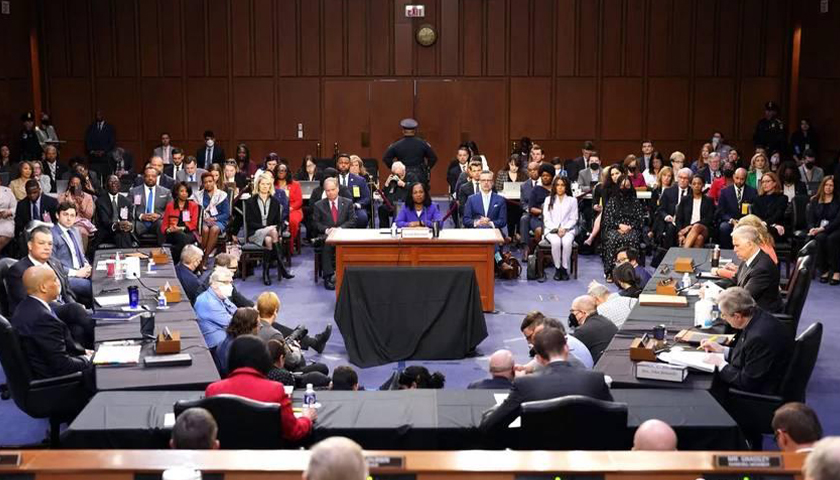If confirmed as a Supreme Court justice, she vowed to limit the government’s “overreach” in punishing criminals and enforce the guarantees offered the accused under the Bill of Rights.
That said, Jackson testified, “It’s very important that people be held accountable for their crimes, so if they’re not, then it would be a problem for the rule of law.”
Her idea of the best way to hold criminals “accountable” is a key issue the Senate will have to weigh as it votes to confirm her confirmation early next month.
As the count stands now, it appears she has enough votes to squeeze past an evenly divided Senate. But Republicans are pressuring Democrats on the Judiciary Committee to release documents they say shed more light on Jackson’s record on the bench, as well as the sentencing commission. Democratic Senate Judiciary Chairman Dick Durbin refuses to turn over even redacted copies of the presentencing reports generated in the child sex offender cases Jackson presided over. He also will not release her emails and other internal correspondence from her time on the commission. The White House, moreover, is withholding an additional 48,000 pages of documents that likely include some of her commission emails.
“Why are Democrats hiding her record? What is Judge Jackson hiding?” Davis asked.
Read More

